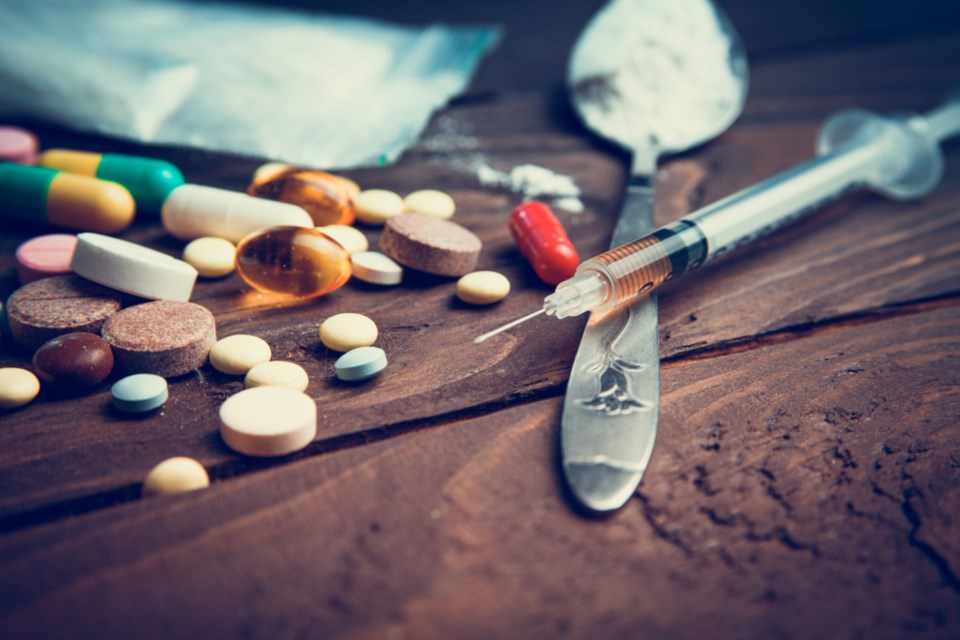Editor's note: BarrieToday contacted all of the candidates in the Barrie-Springwater-Oro-Medonte (BSOM) riding to hear what they have to say on a series of topics ahead of Thursday's provincial election. Each candidate was asked to provide a 150-word response. Here is what they had to say about the opioid crisis.
*************************
Elyse Robinson, Green:
We will decriminalize drug use and shift funding from the justice system to health care, and increase the number of provincially funded treatment beds.
We will also increase the number of safe consumption and treatment sites and expand the availability of harm reduction programs, including safe supply, as well as increase the availability of naloxone kits.
And we will establish a three-digit, 24/7 province-wide mental health crisis response line, and create mental health-focused crisis response teams to respond to drug poisonings.
Beverley Patchell, NDP:
An NDP government will declare the opioid crisis a public health emergency and invest in addiction rehabilitation, detox centres and harm reduction strategies.
We will remove the caps Doug Ford placed on supervised consumption sites, expedite approvals for supervised consumption sites in the north and work to ensure safer alternatives to the current toxic and deadly supply of drugs available on the street.
We will also work with the federal government to reduce the stigma of drug addiction and decriminalize personal drug use so people can get the medical help they need.
Chiefs of police have joined the call for stronger action including decriminalization.
Hayden Hughes, New Blue:
The opioid crisis has been getting increasingly worse over the years. Overdoses and deaths reached an alarming high during the COVID-19 lockdowns. This can be attributed to many factors, but the massive changes in people's lives and the lack of access to public health and human interaction were undoubtedly major players in the increase in substance abuse and addiction.
New Blue will fight to stop the mandates and lockdowns that were so destructive to mental health and social well-being, ensuring that services such as counselling and outreach programs are accessible to those that need them.
Encouraging and sustaining personal connection and face-to-face interaction will be beneficial for people who struggle with addiction.
Gerry Auger, Ontario Party:
The opioid epidemic is a serious crisis plaguing our society. This requires a several pronged approach including an addiction/health component.
(There's) a drug-trafficking proliferation of opioids, especially fentanyl. Law enforcement needs to have more tools available to them than simply arresting a user who is a victim of the vice, but going after the promoters as well as the dealers and sellers.
I personally see this exploitation and is like bringing a gambler to a casino, and the dealers and the supply chain should be held liable for the cost of care incurred in treating those caught up in the addiction.
Doug Downey, Progressive Conservative:
Every year, more than one million Ontarians experience a mental health or addictions challenge.
With the introduction of Roadmap to Wellness: A Plan to Build Ontario’s Mental Health and Addictions System in March 2020, Ontario is turning a chapter. Built on four pillars, this roadmap lays out a clear path toward meaningful improvements to the care Ontarians receive, enabled by the historic $3.8 billion over 10 years our government will invest to expand mental health and addictions services.
Investments in addiction treatment services, from prevention to intensive treatment, will improve quality and expand availability across the province. This includes implementing a comprehensive suite of policies and programs to address opioid addictions and overdose, focusing on appropriate prescribing and pain management, and harm reduction services and supports.
In BSOM, our government has provided funding to Georgian College to increase access to mental health and addiction services.
Jeff Lehman, Liberal:
Deaths related to opioid use and addiction have continued to rise and have caused devastation to families and communities.
An Ontario Liberal government will build a compassionate, nonjudgmental and supportive Ontario that aims to help those with addictions, follow evidence and reduce harm.
This plan includes a $3 billion targeted investment into mental health and addictions services, and a $300 million investment across the addictions sector to assist the prevention, intervention, and treatment of opioid addictions and overdoses.
We’ll also provide a steady supply of naloxone kits, fentanyl testing strips and harm reduction supplies at pharmacies, community spaces and with first-responders.
Our plan also includes targeting organized crime, lifting the cap number on supervised consumption sites, and reactivating the Opioid Emergency Task Force so our communities are equipped with the tools necessary to combat the crisis at its source.



